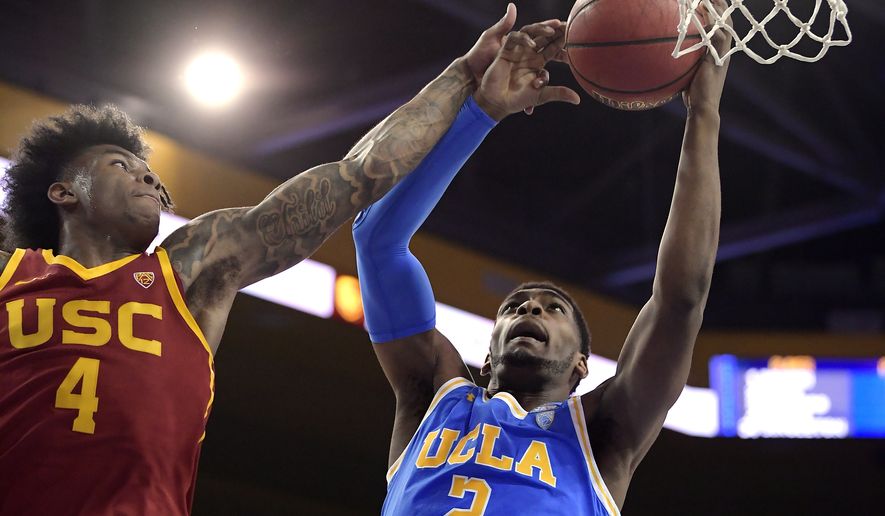Lawmakers finally see the light, try to right an NCAA wrong

By DERON SNYDER (as published in The Washington Times)
Three cheers for the California State Assembly.
Select college athletes have tried standing up against the NCAA syndicate. For the most part, those individuals were swatted down like pesky flies. Incremental gains have been achieved – cost-of-attendance stipends, “guaranteed” scholarships, less-stringent transfer rules, more food – but only through pulling teeth, public shaming and court rulings.
The few appeasements haven’t hurt the NCAA, which views them as pocket lint more than pocket change. As long as the core shams of amateurism and student-athletes remain intact, the billion-dollar industry keeps humming, even as naysayers occasionally nibble at the margins.
But on Monday, California lawmakers took a welcome and long overdue step in the fight against the NCAA’s unrighteous business practices.
By a vote of 73 to 0, the State Assembly approved the Fair Pay to Play Act, which had already cleared the Senate. The measure would allow athletes in California to be paid for the use of their name, image and likeness, wresting that lucrative stream from schools, conferences and the NCAA – all of which bar athletes from signing endorsement deals.
The act falls short of paying athletes a share of the loot they generate, but it allows them to capitalize on themselves when the opportunity exists. Civil rights advocates and free-market proponents cheered. The NCAA Board of Governors booed and on Wednesday sent a letter to Gov. Gavin Newsom, who has 30 days to sign or veto the legislation.
“We urge the state of California to reconsider this harmful and, we believe, unconstitutional bill and hope the state will be a constructive partner in our efforts to develop a fair name, image and likeness approach for all 50 states,” the letter read, warning that California schools could be ineligible for NCAA competition if the bill becomes law.
Developing a fair approach doesn’t take much effort at all.
If a fast-food chain wants to use Alabama quarterback Tua Tagovailoa to sell chicken sandwiches, fine. If a company want to feature Clemson QB Trevor Lawrence in a campaign to promote its hair-care products, no problem.
If Stanford’s Olympic gold-medalist Simone Manuel is asked to endorse an aquatics center, good for her. If a player like former Central Florida kicker Donald De La Haye is entertaining enough to make some coin on YouTube, great.
What’s so hard about that?
“We explored how (the bill) might impact the association and what it might do,” NCAA chief operating officer and chief legal officer Donald Remy told The Associated Press. “We believe it would inappropriately affect interstate commerce.”
That’s too funny.
An organization that’s supposedly all about “amateurism” is concerned that athletes’ rights would affect commerce. A lawsuit could loom because the U.S. Constitution says only Congress has the power to regulate commerce among states, hence the letter’s reference to constitutionality.
“I’m not saying there will never be a day we would consider (legal action),” Remy said, “But it is not meant to be a threat.”
Sure. Just like the status quo isn’t meant to be exploitative.
The NCAA argues that California schools would enjoy an unfair advantage if recruits could possibly cash in on commercials, sponsorships, autographs, jersey sales, etc. There’s an easy solution to that: Let athletes in every state cash in!
U.S. Representative Mark Walker (R-N.C.) has the right idea. He introduced a federal bill in March, the Student-Athlete Equity Act, which would remove the NCAA’s (unjustified) tax exemption unless the organization releases players’ publicity rights.
“Signing an athletic scholarship with a school should not be a moratorium on your rights to your name, image, and self-worth,” Walker said in announcing the bipartisan legislation.
His bill was introduced during the height of the NCAA’s March Madness, currently in the middle of a 22-year, $19.6 billion TV contract from CBS and Turner Sports. California’s bill comes as college football gets underway, headed toward a playoff that fetched $7.3 billion from ESPN.
But, no, athletes who are positioned to make a profit can’t be allowed to do so.
Lest you forget, the overwhelming majority of college athletes will not play professionally, whether theirs is a revenue sport or a non-revenue sport. There’s no good reason to prohibit them from economic opportunities available to everyone else on campus.
The Student-Athlete Equity Act was referred to the House Committee on Ways and Means. The Fair Pay to Play Act, which would go into effect in 2023, is headed to the governor’s desk.
Powerful people in influential positions have finally joined the fight against the NCAA.
Better late than never.
—
Brooklyn-born and Howard-educated, Deron Snyder writes his award-winning
column for The Washington Times on Tuesdays and
Thursdays. Follow him on Twitter @DeronSnyder.
—
Deron Snyder, 239-292-5216
 Follow
Follow
